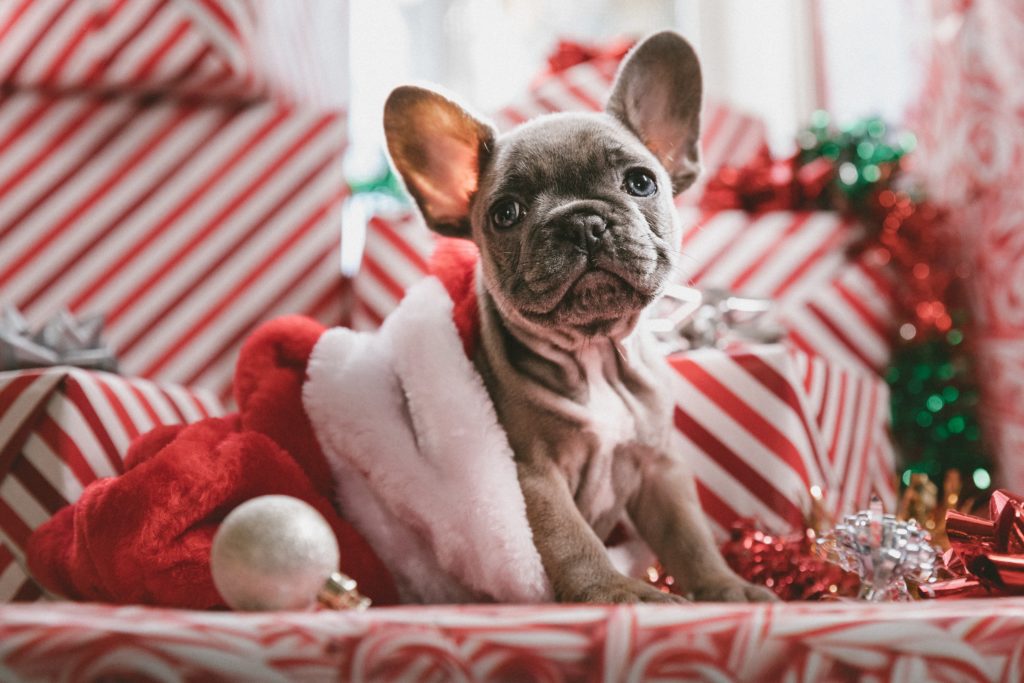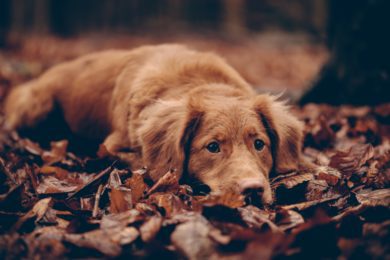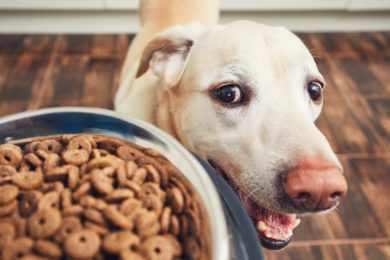 1. Cold Weather
1. Cold Weather
- A fur coat does not exclude pets from frostbite and hypothermia, and Ontario’s laws require that animal guardians supply proper care and shelter, but how cold is too cold? If it is below freezing, pets should not be left outside for extended periods of time. “Wind chill warning” means keep your pet’s time outside to a minimum. Bring them in if they are shivering, vocalizing, or doing the paw hop. Young and old pets or pets on medication can be more susceptible to the cold – keep them indoors as much as possible.
2. Toxic Temptations
- Ethylene glycol, found in anti-freeze and some brake fluids, tastes sweet to pets but can cause death. Symptoms are stumbling, vomiting and acting as if they are intoxicated. Be sure to clean up spills and store it where pets cannot reach. Watch for spills when out on walks.
- Salt or Snow melting chemicals, can be ingested. Wipe your pet’s paws to prevent them from cleaning these substances from their paws or use “booties”.
3. Decorating Dangers
- Fresh florals commonly used in holiday decorating can be toxic to pets.
- Mistletoe can cause vomiting, diarrhea and lethargy.
- Holly can cause vomiting, nausea, diarrhea and lethargy.
- Poinsettias can irritate your pet’s mouth, cause nausea or mild vomiting. Lilies, can cause kidney failure in cats.
You may want to consider silk or plastic floral arrangements as a safe alternative, or placing plants out of reach of your pet.
- Christmas trees pose many dangers to pets. Consider decorating your tree, or at least the bottom third, with ornaments that are less likely to attract your pet’s attention, such as dried non-toxic flowers, wood, fabric or pinecones.
- Christmas tree water may contain fertilizers and bacteria. If ingested it could cause nausea, vomiting and diarrhea in your pet.
- Decorations such as ribbons are very attractive to pets, especially cats, and if ingested can cause intestinal obstruction.
- Sparkly lights are equally attractive, but can become life threatening if your pet decides to chew the cords.
- Ensure any tinsel, ribbons, ornaments and ornament hooks that fall to the floor are picked up immediately and secure your tree so that it can’t be toppled or knocked over.
- Supervise your pet and use barriers (e.g. baby gates) and topical pet deterrents (e.g. bitter apple spray, a bad-tasting substance available from most pet stores) as necessary to keep your pet safe from holiday temptations.
4. Tasty Treats
- Chocolate and other holiday sweets are not for pets. Chocolate contains theobromine which can be poisonous to many animals depending on the amount and type ingested. Dark chocolate is most dangerous, but chocolate poisoning can even occur if small amounts are fed repeatedly. Watch for vomiting, diarrhea, seizures, hyperactivity, and increased thirst, urination and heart rate.
a) Christmas treats should always be monitored. Family and friends may find the need to ‘treat’ your pet. Mom said it best…
“all things in moderation.”
b) Milk products can cause pets to become ill as they lose their ability to digest lactose with age.
- Alcohol should never be in reach of pets. If your pet ingests alcohol he can become very sick and weak and may go into a coma, possibly resulting in death from respiratory failure.
- Holiday leftovers may give your dog or cat severe indigestion and diarrhea. This is particularly true for older animals that have more delicate digestive systems and nutritional requirements. Poultry bones can splinter and cause blockages. Greasy, spicy and fatty foods can cause stomach upset and don’t forget to store the garbage safely out of reach from your pet.
- ‘Bloat’ is caused by too much gas or fluid in the stomach and could cause your dog’s stomach flipping (rotation); a deadly condition. Deep-chested dogs are most at risk, but rotation has occurred in dogs that have been allowed to eat too fast. Signs include: abdominal distention, salivating, retching, lethargy or a rapid heart rate.
5. Cold medication caution
- Tylenol can be fatal to a cat. Keep all medication out of animals reach during cold and flu season.
- Always consult your veterinarian if you suspect your pet has ingested something it shouldn’t have.
6. Car Hazards
- Never leave your pet in your car during cold weather. The space is too large to heat with their body heat and they could freeze to death.
- It is never a good idea to let your pets roam, but in snowy weather, they easily lose their way and sound dampening effects mean pets can’t hear cars coming.
- Cats seeking warmth often end up inside car engines which could prove fatal. Be sure to knock on your hood before starting your car.
7. Exercise
It is important that pet receive daily exercise and it is one of the best ways of warming up in cooler weather. However, the following cautions should be observed:
- Wipe your pet’s paws free of salt or other chemicals. Be sure to check for ice balls, dry cracking pads or other injuries.
- If your pet is having difficulty exercising due to snow, icy surfaces, or appears to be winded, shorten the usual exercise times.
- Coats and booties help your dog stay toasty warm.
- Don’t shave your dog down to the skin – a longer coat will provide more warmth.
- After bathing your pet ensure he is completely dry before allowing them outside.
8. Busy Schedules
With guests coming and going during the holidays take extra care that your pet does not escape outside and become lost. Cats, in particular, are prone to hiding and/or bolting when guests, especially a large number of them, visit your home. Dogs should also be carefully supervised as they may become over-excited with all of the holiday celebrations. One solution is to place your pet in a quiet, safe and comfortable part of the house away from all of the guests, but with access to food, water, litter box, etc. Alternatively, you may wish to use a crate for short periods to keep animals from getting underfoot during the festive frenzy while allowing them to be part of the celebration.
- Should your pet go missing, call the Humane Society first. If they are not here fill out a lost card so that we can call you if they are found.
9. Outdoor Pets
The Guelph Humane Society recommends that all pets be allowed to spend their winter days indoors. However, those pets that do spend a great deal of time outside still need protection. Cats and dogs that live outside require more calories in the winter allowing their body to produce heat, and it is recommended that owners check water dishes frequently to ensure it’s not frozen or spilled over. Best bet is to opt for a heated and tip-proof bowl. To keep pets comfortable and warm at night, try a hot water bottle.
Ensure your pet has adequate shelter. Sufficient dog houses are:
- An appropriate size. Bigger is not better – dogs use their body heat to heat the house, and if the space is too large they will freeze.
- Built with weatherproof materials.
- Facing away from prevailing winds.
- Filled with straw bedding that is changed frequently. Blankets and rugs freeze too quickly.
- Elevated 6 inches off the ground.
- Insulated with Styrofoam, with a clear rubberized covering on the doors.
- Easy for your pet to get into.
- Built with a small hallway leading to a larger resting space.
- Do not use a heat lamp or other type of home heater as it may cause fires.
- On the coldest days allow the pet to come indoors.
10. NEVER surprise a loved one with a pet as a gift.
While planned pet adoptions are great, never give pets as “surprise” gifts to friends or family members. Shelters across Canada are filled with unwanted pets that were once “gifts”.
- If you have planned to add a new pet to your family during the holidays, ensure that you will be home to provide the care and attention your new family member will require as he adjusts to his new environment.
- One option is adopt your pet before Christmas but wait until after the holidays to bring him home. Honor your family’s pet adoption by placing a photo of him under the tree, or a stuffed animal representative of your new pet, or pet products and accessories for when he does arrive.
The Best Gift for Pets
The best holiday present for your pet is plenty of love and attention. Include your pet in your holiday activities and give him or her lots of attention, playtime and appropriate exercise!


